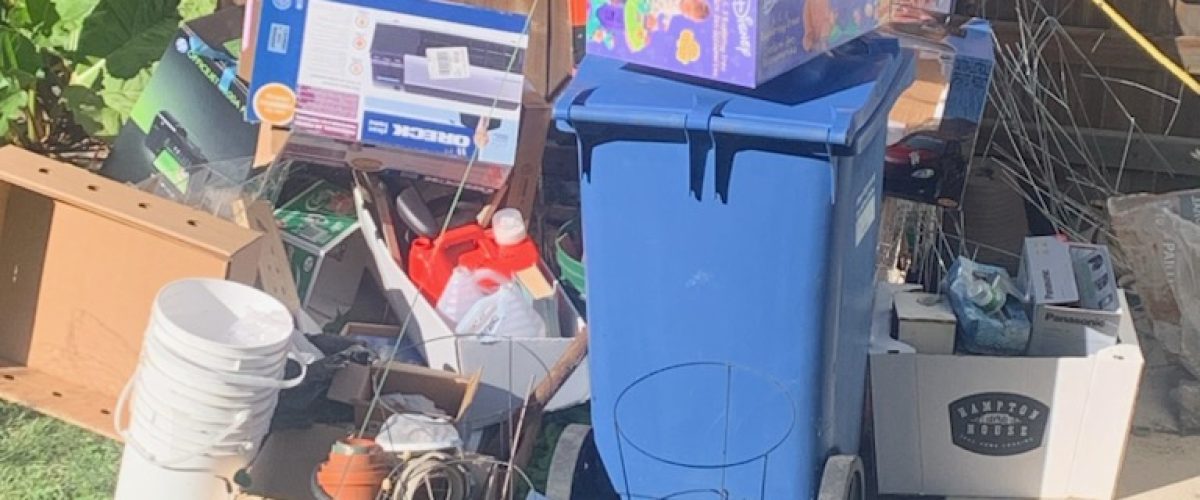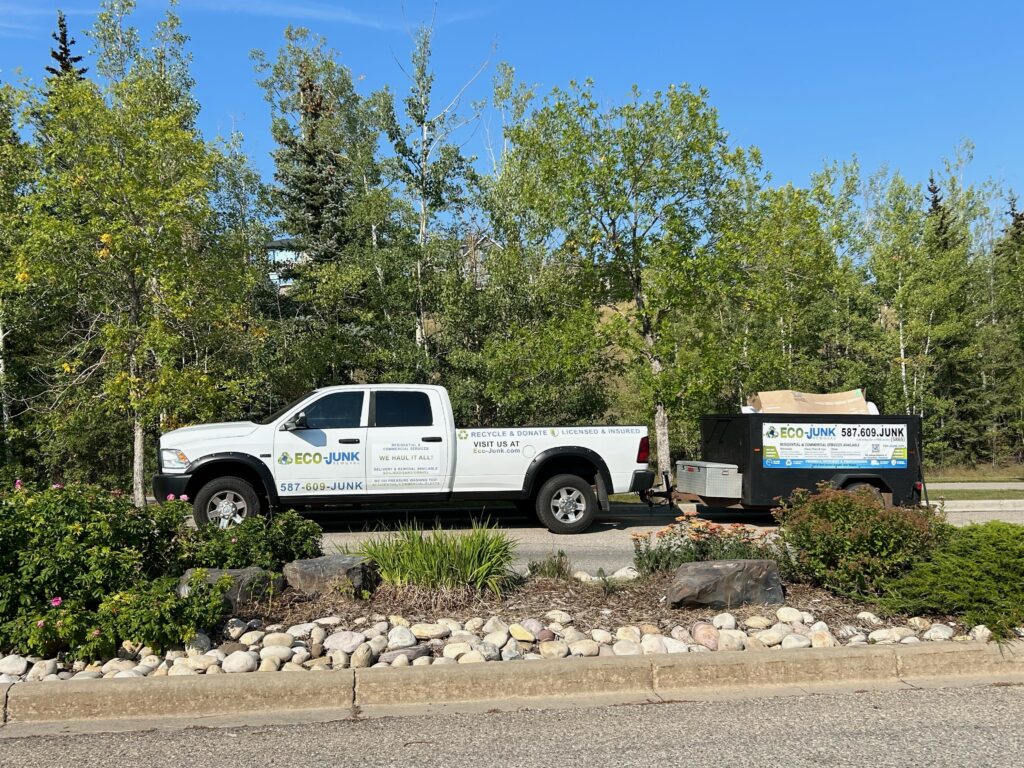Glossary
Junk Removal Key Terms & Glossary
A. Appliance Removal: The process of removing large household appliances, such as refrigerators, washing machines, or ovens, from a property for disposal or recycling.
B. Bulk Trash: Large and bulky items that cannot be disposed of through regular trash collection, such as furniture, mattresses, or large electronics.
C. Cleanout: A comprehensive removal service where all unwanted items and debris are removed from a property, typically performed during estate cleanouts or renovations.
D. Donation: The act of giving unwanted but still usable items to charitable organizations or thrift stores instead of throwing them away.
E. E-Waste: Electronic waste, which refers to discarded electronic devices like computers, TVs, smartphones, or printers that need proper recycling due to their hazardous components.
F. Foreclosure Cleanout: A specialized junk removal service focused on clearing out and cleaning up properties that have been foreclosed on, typically involving the removal of furniture, appliances, and debris.
G. Garbage Removal: The process of collecting and disposing of general household waste and garbage.
H. Hazardous Waste: Waste materials that possess harmful properties or potential environmental risks, such as chemicals, paints, batteries, or asbestos, requiring special handling and disposal procedures.
I. Illegal Dumping: The unauthorized disposal of waste or junk in inappropriate locations, such as public areas or private properties, without proper permits or authorization.
J. Junk Removal: The service of removing unwanted items, debris, or clutter from residential or commercial properties, usually provided by professional junk removal companies.
L. Landfill: A designated area for the disposal of solid waste materials, where junk and other waste products are dumped and buried.
M. Moving Cleanout: A junk removal service focused on helping individuals or businesses remove unwanted items when moving to a new location, including furniture, boxes, and other belongings.
N. Non-Recyclable Waste: Waste materials that cannot be recycled due to their composition, nature, or lack of recycling facilities, such as certain plastics, Styrofoam, or mixed materials.
O. Organic Waste: Biodegradable waste materials derived from plants or animals, such as food scraps, yard trimmings, or paper products, which can be composted to create nutrient-rich soil.
P. Property Preservation: The process of maintaining or restoring abandoned or foreclosed properties, which may involve junk removal, cleaning, repairs, and general upkeep.
Q. Quick Removal: Expedited or same-day junk removal service provided by some companies to meet urgent customer needs or time constraints.
R. Recycling: The practice of processing and converting waste materials into reusable materials, reducing the consumption of new resources and minimizing environmental impact.
S. Salvage: The act of recovering and saving items from the junk or waste stream that still have value or can be repurposed, such as reclaimed wood or vintage furniture.
T. Trash Hauling: The transportation and removal of various types of waste materials, junk, or debris from one location to another, typically using trucks or other specialized vehicles.
U. Upcycling: The process of transforming discarded or unwanted items into new products or materials of higher value or quality, often involving creative repurposing or redesigning.
V. Volume Pricing: A pricing model used by junk removal companies, where the cost of the service is determined by the volume or amount of junk being removed.
W. Waste Management: The comprehensive control and handling of waste materials, including collection, transportation, disposal, recycling, and regulatory compliance.
X. Xeriscaping: A landscaping technique that focuses on designing and maintaining outdoor spaces with minimal water usage, promoting sustainability and conservation.
Y. Yard Waste: Organic waste materials generated from yard maintenance activities, such as grass clippings, leaves, branches, or tree trimmings, which are often collected separately for composting or mulching.
Z. Zero Waste: A waste management philosophy and approach that aims to minimize or eliminate the generation of waste by promoting recycling, composting, reuse, and sustainable consumption practices.


Eco-Junk Removal
9308 Almond Crescent SE, Calgary, AB T2J 1B6
(587) 609-5865
